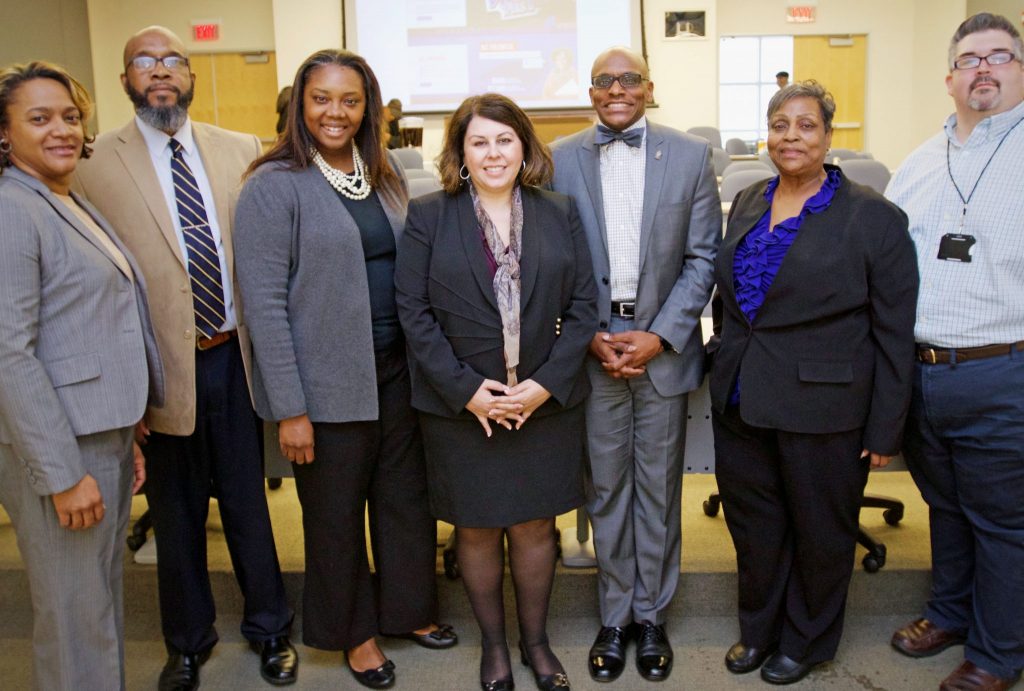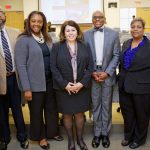ECSU Awarded More Than $4 Million in Competitive Grants

The ECSU Sponsored Programs office is responsible for working with faculty to pursue and write grants. The staff is, left to right, Michelle Moore, Pernell Bartlett, Dr. Cyntrica Eaton, Annemarie Delgado, Anthony Smith, Vandalyn Ray, and John Raynor.
Over $4 million in competitive grants have been awarded to programs at Elizabeth City State University this year, making 2018 the highest yield in grant awards since 2012, according to Annemarie Delgado, Director of Sponsored Programs, Contracts, and Grants.
STEM programs, the Khan Planetarium upgrade, and the North Carolina Problem Gambling Program are just a few examples of the 22 grant awards that have added up to the record year.
The grants are coming from a variety of sponsors, including the Title III program. In addition to competitive grants, ECSU receives Title III funding awarded through the U.S. Department of Education to HBCUs. Delgado says each year Title III funding supports a number of programs and activities across campus.
“Title III is pretty significant on this campus, and across all HBCU campuses,” she said.
Another source of funding is the National Science Foundation (NSF). In the past, ECSU faculty research has benefited from the NSF, and most recently a proposal from Dr. Gloria Payne and Dr. Harry Bass was awarded more than $2 million.
The project, VESTEM, will work to increase graduate education and workforce development, and increase the number of STEM (Science Technology Engineering Math) majors at ECSU by 25 percent.
“This is the largest award received this fiscal year,” said Delgado.
Delgado’s office and staff are working with faculty to help write grants, and offer support through the process. Their efforts, in collaboration with faculty, has resulted in the high-profile grant awards that bring new research opportunities to campus, offering faculty and students a broader range of opportunities, and ECSU more exposure throughout the world of higher education.
“There has been more of a focused effort among administration in working with the Sponsored Programs to identify faculty to write for grants, and identify the right funding opportunities,” said Delgado.
Delgado explained that when faculty members write for grants, they will include students in their proposals. This means that when a grant is awarded, not only do faculty members have research funding, but also funding to include undergraduate and graduate students in the work.
Including students in research affords ECSU students the opportunity to gain valuable experience. That experience can be translated into qualifying for graduate work, as well as career experience, says Delgado.
Grants also fund equipment and “infrastructure revitalization.” Funding for infrastructure revitalization can be seen most recently in the digital upgrade for the Khan Planetarium, announced last June.
Delgado explained that the increase in grant funding not only means more program opportunities on campus, but also serves to raise ECSU’s profile across the country.
“We’re getting ECSU’s name out there, forming partnerships, and always seeking collaborative opportunities,” she said.
And all of that, she explained, works to perpetuate the opportunity for more grant funding down the line.


